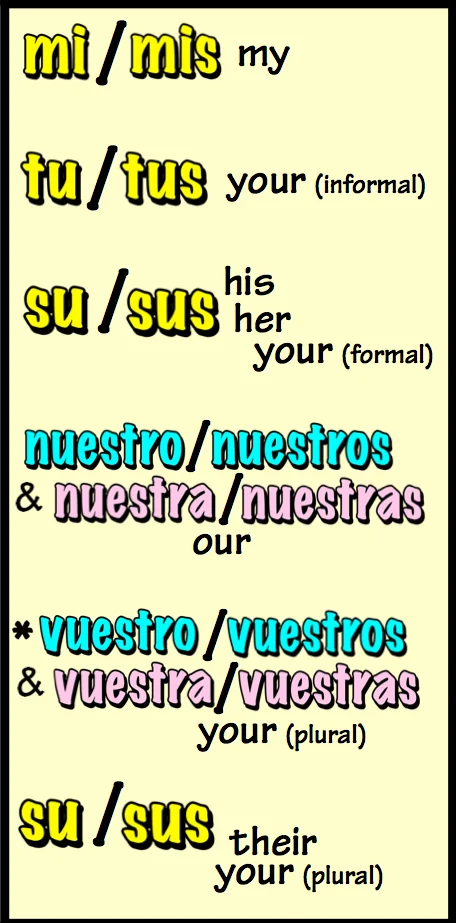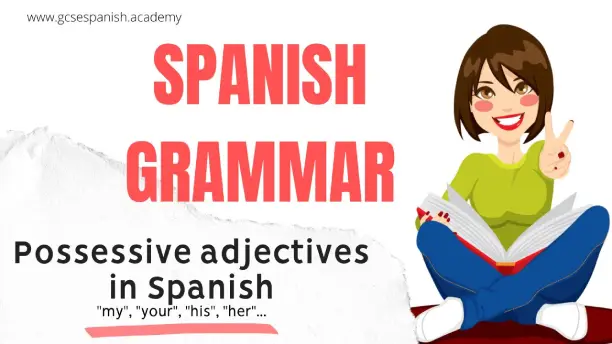In this lesson, we are going to study possessive adjectives in Spanish, which are very handy for saying what’s is yours and for pointing things out. They will be especially useful to talk about family and friends.
Spanish possessive adjectives for beginner
Thanks to this video you will learn everything you need to know about possessive adjectives in Spanish. Don’t forget to stop the video and write down any relevant information and examples in your notebook.
Mi, tu, nuestro... my, your, our

Remember that Spanish possessive adjectives have to agree with the noun they are describing, this is way is so important to learn always the gender of each noun:
- Mi hermano (my brother)
- Mis hermanos (my sibling)
- Nuestro coche (our car)
- Nuestra casa (our house)
- Nuestros vecinos (our neighbors)
- Nuestras mascotas (our pets)
Careful with «su» and «sus», they can mean «his», «her», «its», «their» and «your» (formal). Use the rest of the information in the sentence to work out which of these it is:
- Carmen está preocupada porque su gato está enfermo (Carmen is worried because her cat is sick).
- ¿Es este su coche, Sr. Martínez? (Is this your car, Mr. Martínez?).
«vuestro», «vuestra», vuestros» and «vuestras»are used only in Spain for the informal «your«, when talking to more than one person. In Latin America «su» and «sus» are the plural «your» both formally and informally:
- Vuestra casa es muy bonita (Your house is very nice): Spain.
- Su casa es muy bonita (Your house is very nice): Latin America.
Do not mistake possessive adjectives, which are written in front of a noun, with possessive pronouns, which are written in front of a verb.
